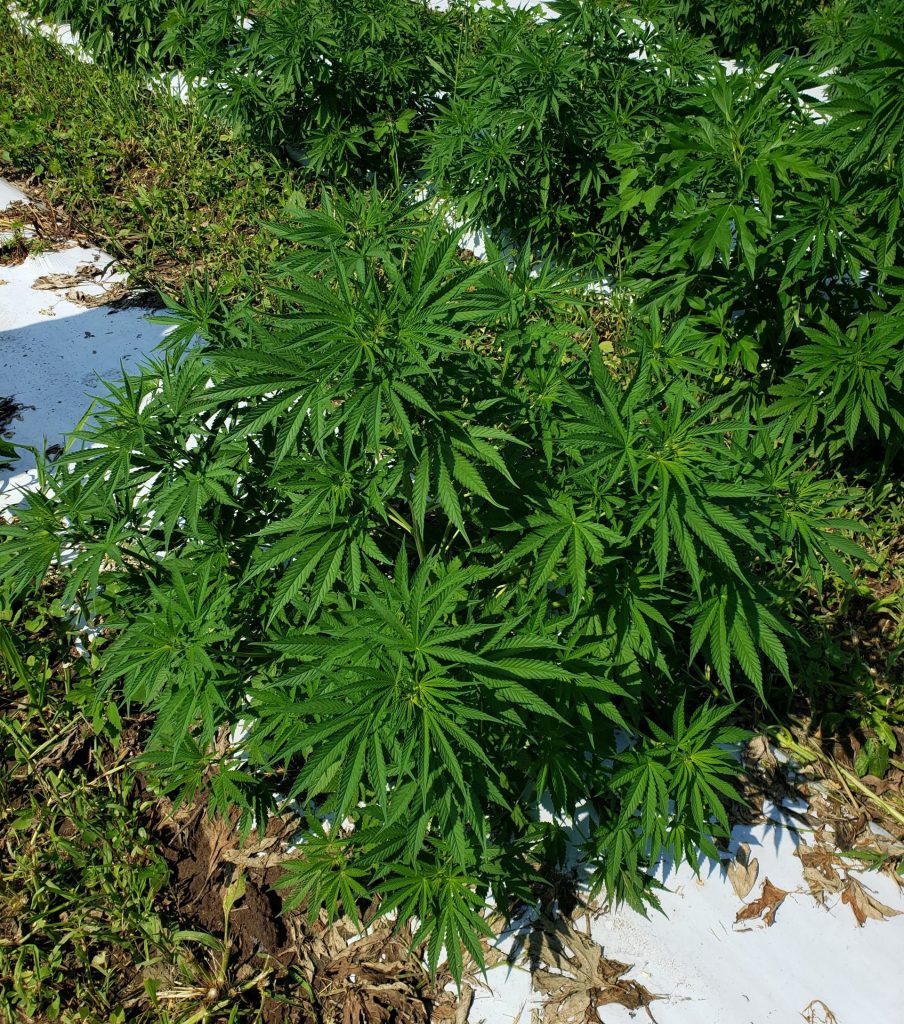Rusty Rumley
Introduction
Industrial hemp production has created some unique and novel challenges for attorneys, growers, and processors. This relatively new crop, facing both logistical and legal challenges, has created problems and opportunities for all involved in the emerging industry. Contracts are one area that has been especially problematic in the past. Industrial hemp is a regulated crop and therefore must be treated differently from other specialty or row crops that are more commonplace.
Hemp, also known as Cannabis sativa L., is mainly cultivated for its fibers, seeds and oils. Although easily confused with marijuana, the plants are of the same species, but of different varieties. According to federal law, the only distinction between the two plant varieties is in their THC concentrations. 7 U.S.C.A. § 1639o(1) specifically defines industrial hemp as only containing a THC concentration of 0.3 percent on a dry weight basis. While production has been non-existent for decades in the United States, in 2014, the federal government began easing hemp laws and regulations, which eventually led to the legalization of hemp and later its exclusion from the definition of “marihuana” under the Controlled Substances Act. While not every state has enacted laws pertaining to hemp, 49 states and numerous tribes have taken actions to regulate their hemp industries. However, this crop faces numerous potential issues such as crop insurance, the legality of CBD as a food additive or dietary supplement, the use of pesticides, and contracts.
Current Contracts and Factors to Consider
Unique challenges to the industrial hemp industry has made it difficult to find good sample contracts. A good contract will take into account the nature of the parties and their expectations as to what the basis of a contract will be. Because hemp production is relatively new to today’s growers and attorneys, the contracts that we have seen in use largely resemble contracts for traditional specialty crops and oilseed crops. While there is some overlap between the crops, the differences in licensing, common clauses found in hemp contracts, the differences with the hemp plant itself, and the high costs of planting and harvesting a hemp crop necessitates a more thorough contract
Because hemp is a regulated crop, both the grower and the processor must be licensed under a state, tribal or USDA program before they can grow or handle the unprocessed hemp material. This can create a significant amount of paperwork and start an expensive process, which should be laid out in the contract. For example in Rhode Island, hemp growers must pay a licensing fee of $2,500 that lasts for two years. Typical row and specialty crops contracts do not take into account issues such as who pays for licensing because licensing largely does not exist with traditional crops.
There are many things to be aware of in the industrial hemp contracts that we have seen at the Center. One important clause to watch out for that affects both the quality of existing contracts and parties’ ability discuss the contract with other people is the confidentiality clause. Confidentiality clauses are not new in agricultural contracts. For many years, it was common to find such clauses in production contracts for raising poultry and swine. These contracts restrict the ability of the signing party to share details about the contracts with other people, typically excluding that person’s spouse and attorney. Because the grower that signs the contract can no longer talk about it, other growers in the area are not able to compare the terms of their contracts, which could lead to one grower receiving more favorable terms. It also limits the developments of better contracts because the confidentiality clause prevents other attorneys from using things that they have learned from the agreement to improve hemp contracts in the future. Another common issue is which party bears responsibility if the hemp crop tests over 0.3 percent THC threshold? In many instance the burden is placed on the grower and the rate of crops testing can vary greatly. In Arizona during the 2019 crop year, the state agricultural department estimated that 41% of all hemp plants tested came in over 0.3 percent THC threshold.
Another difference that some contracts do not take into account is the unique nature of the hemp plant. For example, hemp is a bio accumulator, which means that the plant is more efficient at absorbing things from its surroundings. If you are growing hemp on ground where there is a long tradition of cotton production the hemp plants can actually absorb the arsenic that has accumulated in the soil from old pesticide applications. Heavy metals, like arsenic, can cause an otherwise successful crop to be discarded because of its toxicity.
A third challenge associated with current hemp contracts is that many of them do not take into account the volatile nature of them hemp market. From 2014 through 2018, many hemp growers and processors were profitable; however, this changed in 2019 as the hemp industry has struggled with rapidly declining prices. Many potential growers do not realize the potential amount of money that can go into a hemp crop. A projected budge from the University of Kentucky estimated the per acre cost of a CBD variety of hemp at $19,421. With costs that high, good contracts need to explain what happens when unexpected problems arise.
Conclusion
Farmers and lawyers deal with contacts on a regular basis, however, the fact that hemp is a regulated crop and one where American farmers are relearning how to cultivate it, create new and unique challenges. As the production of hemp becomes more standardized, we should also expect to see a corresponding increase of the sophistication of the contracts that support this revitalized industry. Because of the costs associated with the growing and processing of industrial hemp it is critical that all parties to the contracts know what they are getting into and fully understand the agreements in which they are entering.
Extra Resources:
NALC Industrial Hemp Reading Room
NALC Compilation of State Industrial Hemp Statutes
